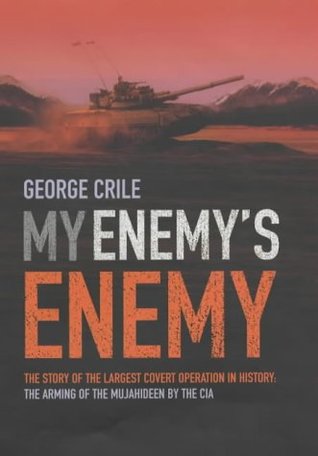
George Crile
was an American journalist most closely associated with his three decades of work at CBS News.
Son of George Crile, Jr.; grandson of George Washington Crile.
From nytimes.com obituary:
George Crile, a television news producer who specialized in attacking difficult, controversial subjects, most famously in a documentary for CBS alleging that Gen. William C. Westmoreland and his military colleagues deliberately underestimated enemy troop numbers in the Vietnam War, died yesterday at his home in Manhattan. He was 61.
Mr. Crile, who spent much of his career working on the CBS program "60 Minutes," took on formidable topics, many in foreign countries, and earned a reputation for boldness that both won awards and drew stinging criticism. His 1982 documentary about Vietnam, "The Uncounted Enemy: A Vietnam Deception," engendered one of the most bitter disputes in television history.
Working with the correspondent Mike Wallace and others, Mr. Crile attempted to build a case that General Westmoreland, the United States commander in Vietnam, participated in a conspiracy to mislead Americans about the war. The charge was that the military had deliberately underestimated enemy numbers in order to encourage Americans to believe the war was going favorably.
TV Guide printed an article listing ways it said the "CBS Reports" documentary violated network fairness standards, and a subsequent internal CBS investigation found 11 instances in which the program violated network guidelines or was unfair. General Westmoreland strenuously denied the program's charges and sued for libel, asking $120 million in damages.
The result was an 18-week trial in late 1984 and early 1985; CBS and General Westmoreland agreed to an out-of-court settlement in which no money changed hands shortly before the jury was to retire for deliberation.
CBS issued a statement to seal the agreement. It said the report "never intended to assert, and does not believe, that General Westmoreland was unpatriotic or disloyal in performing his duties as he saw them."
The general the next day called the statement an apology, while CBS said it stood by its story.
Mr. Crile later wondered how General Westmoreland could see the network's statement as an apology and, echoing a mantra of war opponents, suggested that the general had decided to "declare victory and leave."
In 1980, Mr. Crile was co-producer of a "CBS Reports" on the influence of homosexuals on San Francisco politics that was criticized by gay rights groups as exaggerated and sensationalistic. The National News Council, a private nonprofit group formed to examine grievances involving the media, found merit in the complaints, and CBS reported the council's finding on the air.
George Crile III was born in San Diego on March 5, 1945, the son and grandson of distinguished surgeons. His mother was Jane Halle Crile, and his stepmother was Helga Sandburg, daughter of the poet Carl Sandburg.
He graduated from Trinity College in Connecticut and served in the Marine reserves. He worked for the columnists Drew Pearson and Jack Anderson, became a reporter for The Gary Post-Register in Gary, Ind., and then was Knight-Ridder's Pentagon correspondent. From 1973 to 1976, he was Washington editor of Harper's Magazine.
Mr. Crile joined CBS in 1976 to produce "The C.I.A.'s Secret Army," which told of the Central Intelligence Agency's secret activities against Cuba after the Bay of Pigs invasion in 1961. It was broadcast in June 1977 and won an American Film Festival Blue Ribbon. His 1978 documentary "The Battle for South Africa" won a George Foster Peabody Award and an Emmy.
His other documentaries included an unusual visit to a Soviet nuclear installation for "60 Minutes," which led to an hourlong follow-up documentary on CNN. He won two Edward R. Murrow awards from the Oversea


![Charlie Wilson's War Abridged: The Extraordinary Story Of The Largest Covert Operation In History [ABRIDGED] Abridged edition by Crile, George published by Blackstone Audiobooks Audio CD](https://abookstorage.com/sys_img/db/YUhSMGNITTZMeTkwYzJVeExtMXRMbUpwYm1jdWJtVjBMM1JvUDNFOVEyaGhjbXhwWlN0WGFXeHpiMjRsTWpkeksxZGhjaXRCWW5KcFpHZGxaQ1V6UVN0VWFHVXJSWGgwY21GdmNtUnBibUZ5ZVN0VGRHOXllU3RQWml0VWFHVXJUR0Z5WjJWemRDdERiM1psY25RclQzQmxjbUYwYVc5dUswbHVLMGhwYzNSdmNua3JKVFZDUVVKU1NVUkhSVVFsTlVRclFXSnlhV1JuWldRclpXUnBkR2x2Yml0aWVTdERjbWxzWlNVeVF5dEhaVzl5WjJVcmNIVmliR2x6YUdWa0sySjVLMEpzWVdOcmMzUnZibVVyUVhWa2FXOWliMjlyY3l0QmRXUnBieXREUkMxd2IzTjBaWEk9.jpg)





